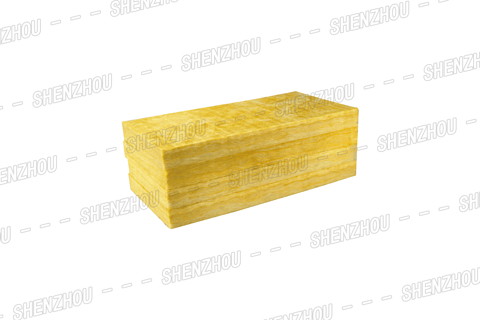
What material is glass wool? What are its advantages and disadvantages
5/9/20245 min read

Glass wool is widely used as an insulation material for houses due to its high insulation performance and low cost. However, if one does not understand the characteristics, they may not be able to perform well due to construction errors, or they may not be able to prevent cold and heat. This article will explain the characteristics that should be known when using glass wool as an insulation materia
Categories
Popular
Applications of Glass Wool Board:
What material is glass wool? What are its advantages and disadvantages
Interior Wall Compartments:
Enhances the functionality and aesthetics of interior spaces.
Ceiling Systems:
Provides effective insulation for ceilings, contributing to energy efficiency.
Insulation of Iron Sheet Air Ducts or Bellows:
Ideal for insulating ductwork, ensuring thermal efficiency.
Sound Absorption and Noise Reduction:
Reduces noise levels in machine rooms, creating a quieter working environment.
Exterior Wall Insulation:
Offers insulation for residential building exteriors, contributing to energy savings.
Glass Wool Insulation





The characteristics of glass wool
In order to improve the insulation of buildings, the usual practice is to cover the exterior of the house with insulation materials or fill the walls with insulation materials. "Fiber based thermal insulation materials" and "foamed plastic based thermal insulation materials" are often used as thermal insulation materials for houses.
Glass wool is an insulation material based on inorganic fibers, which contain air between the fibers and are difficult to transfer heat.
Raw materials and manufacturing methods of glass wool
Glass wool melts raw glass at high temperatures and turns it into fine fibers through centrifugal force. Using recycled glass primarily made from recyclable waste to make it an environmentally friendly material.
Types of glass wool
There are various types of glass wool insulation materials, including board type and blow in type. In addition, according to the fiber density (K=kg/㎡), the higher this number, the better the insulation performance.
Insulation performance of glass wool
The performance of insulation materials is determined by the difficulty of heat transfer. This is represented by the indicator "thermal conductivity [W/m · K]". The thermal conductivity is a number that represents how much heat is transferred per second when there is a temperature difference of 1 ℃ between the front and back of an insulation material with a thickness of 1m and an area of 1m2 In other words, "low thermal conductivity=difficult to transfer heat=high insulation performance.".
The advantages of glass wool
1. Excellent insulation performance
Glass wool has a low thermal conductivity and excellent insulation performance, which can effectively prevent the invasion of cold and hot air from the outside and maintain stable indoor temperature. This makes glass wool widely used in the roofs, walls, floors and other parts of buildings, which can significantly improve the insulation performance and energy-saving effect of buildings.
2. Sound absorption and noise reduction
Glass wool has good sound absorption and noise reduction performance, which can effectively absorb and reduce noise, and improve the comfort of indoor environment. Widely used in KTV, recording studios, cinemas and other places. The use of glass wool can effectively reduce the spread and interference of noise, and improve people's quality of life.
3. Convenient construction
Glass wool construction is convenient, easy to install, and not easily damaged. At the same time, glass wool will not cause harm to the environment and human health.
4. Affordable price
Glass wool is relatively affordable and has a higher cost-effectiveness compared to other high-end materials.
Disadvantages of glass wool
1. Poor durability
The durability of glass wool is relatively poor, and it is easily affected by factors such as ultraviolet radiation and oxidation, leading to a decrease in performance. Therefore, when using glass wool, it is necessary to pay attention to maintenance and upkeep, and regularly replace or refurbish it.
2. Not suitable for humid environments
Glass wool is not suitable for use in humid environments, as it is prone to moisture absorption and affects insulation performance and service life. Therefore, when using glass wool, it is necessary to pay attention to environmental humidity and avoid using it in damp environments.
3. High support system requirements
In order to maintain the shape and stability of the glass wool, it is necessary to use a high-strength support system for fixation and support. If the support system is not strong enough or installed improperly, it is easy to cause problems such as deformation and displacement of the glass wool.

Why Choose SHENZHOU Glass Wool Board?
SHENZHOU® Glass Wool Board not only meets the essential requirements of thermal insulation but also excels in sound absorption and noise reduction. Its adaptability to various settings, coupled with the convenience of construction and installation, positions it as a leading choice for architects, builders, and contractors.
In conclusion, the broad application prospects of SHENZHOU® Glass Wool Board make it a comprehensive solution for enhancing comfort, energy efficiency, and acoustic performance across diverse projects. Choose SHENZHOU® for insulation solutions that go beyond expectations.










About Us
Click the button below to get more information about us
Newsletter
Click to subscribe for more information
Follow Us
Contact Us
Address
Dacheng town, Langfang City, Hebei province, China
Phone
+86 185 03165 626


